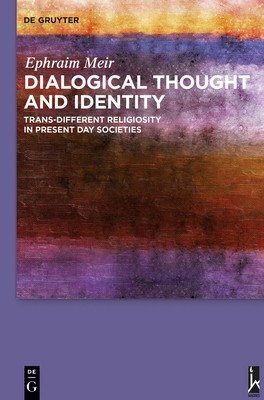
- We will send in 10–14 business days.
- Author: Ephraim Meir
- Publisher: De Gruyter
- Year: 2013
- Pages: 246
- ISBN-10: 3110338319
- ISBN-13: 9783110338317
- Format: 16.2 x 23.4 x 1.9 cm, hardcover
- Language: English
- SAVE -10% with code: EXTRA
Reviews
Description
In discussion with Martin Buber, Franz Rosenzweig, Abraham Joshua Heschel, Franz Fischer and Emmanuel Levinas, Ephraim Meir outlines a novel conception of a selfhood that is grounded in dialogical thought. He focuses on the shaping of identity in present day societies and offers a new view on identity around the concepts of self-transcendence, self-difference, and trans-difference. Subjectivity is seen as the concrete possibility of relating to an open identity, which receives and hosts alterity. Self-difference is the crown upon the I; it is the result of a dialogical life, a life of passing to the other. The religious I is perceived as in dialogue with secularity, with its own past and with other persons. It is suggested that with a dialogical approach one may discover what unites people in pluralist societies.
EXTRA 10 % discount with code: EXTRA
The promotion ends in 10d.04:21:31
The discount code is valid when purchasing from 10 €. Discounts do not stack.
- Author: Ephraim Meir
- Publisher: De Gruyter
- Year: 2013
- Pages: 246
- ISBN-10: 3110338319
- ISBN-13: 9783110338317
- Format: 16.2 x 23.4 x 1.9 cm, hardcover
- Language: English English
In discussion with Martin Buber, Franz Rosenzweig, Abraham Joshua Heschel, Franz Fischer and Emmanuel Levinas, Ephraim Meir outlines a novel conception of a selfhood that is grounded in dialogical thought. He focuses on the shaping of identity in present day societies and offers a new view on identity around the concepts of self-transcendence, self-difference, and trans-difference. Subjectivity is seen as the concrete possibility of relating to an open identity, which receives and hosts alterity. Self-difference is the crown upon the I; it is the result of a dialogical life, a life of passing to the other. The religious I is perceived as in dialogue with secularity, with its own past and with other persons. It is suggested that with a dialogical approach one may discover what unites people in pluralist societies.


Reviews